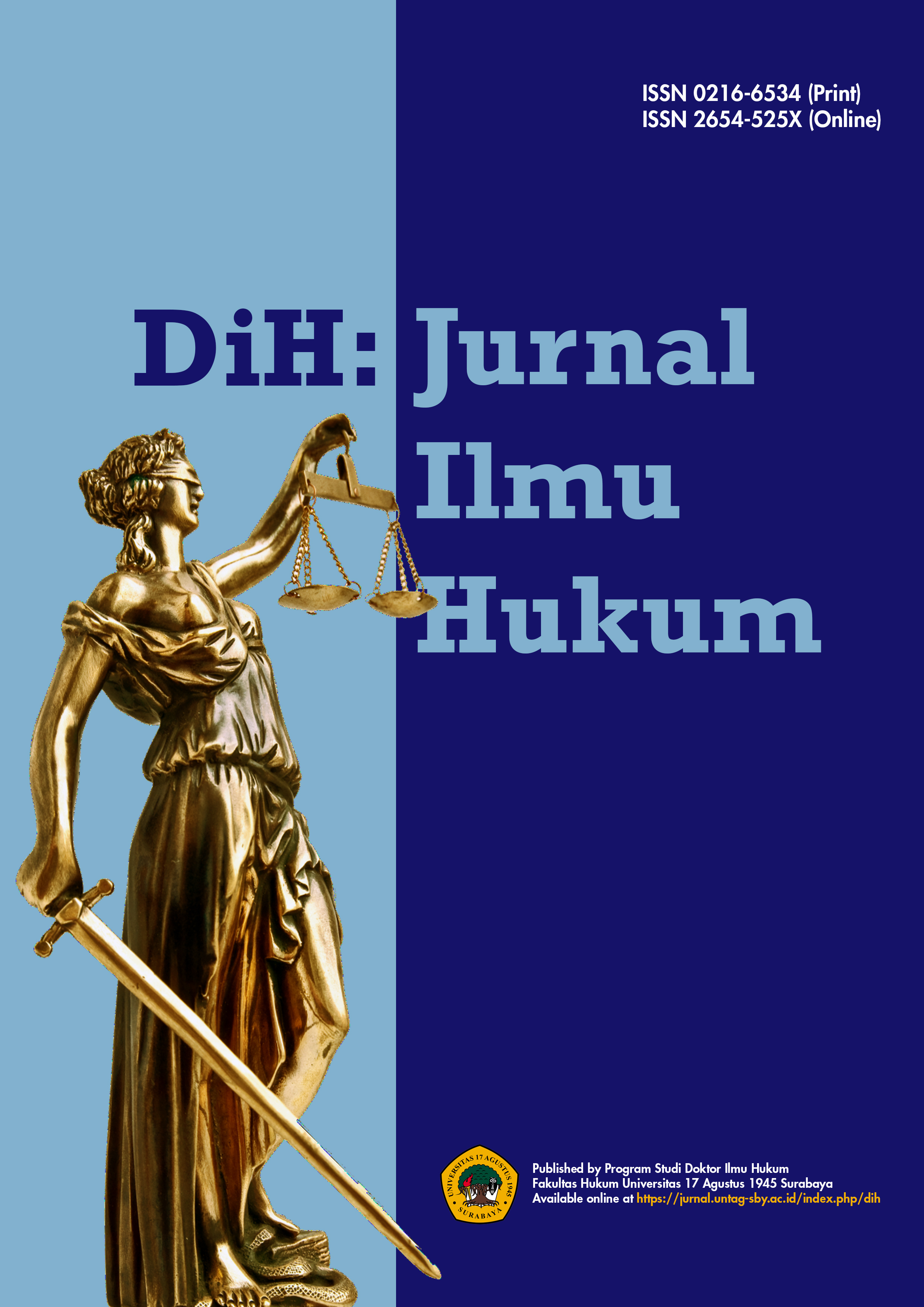Legal Regulations for Fair National Salt Pricing Policy in Indonesia
DOI:
https://doi.org/10.30996/dih.v20i1.10167Abstract
So far, the problem has been the distribution of the salt harvest, which does not have a fixed price each harvest period. This is because there is no policy that specifically regulates the selling prices of salt farmers and entrepreneurs. Meanwhile, during the harvest period, farmers determine selling prices usually based on the weather and the success of the harvest, while entrepreneurs determine prices by looking at the market. In this case, there will be an imbalance and a point of instability in the salt distribution mechanism. The current salt pricing system is based on unstructured market practices and a lack of regulations that strictly regulate the pricing process. Salt farmers are often forced to rely on middlemen or large entrepreneurs who monopolize access to the salt market. The aim of this research is to provide a comprehensive analysis of the importance of regulations related to setting a fair national salt price for salt farmers. This research uses normative legal research methods with a statutory and conceptual approach. The results of this research are so that salt farmers can easily and easily find out the quality of the salt they produce, the government makes policies related to national salt prices which can improve the quality of human resources and formulate regulations. which will determine salt quality criteria openly and the problems of legal regulation of salt prices in Indonesia, including limited access to capital for banks and financial institutions, effectiveness problems, unclear legal politics, and difficulties in coordinating with other laws and regulations, can be overcome. By revising Law No.7/2016. The conclusion of this research is that formulating policies related to salt production and pricing requires an integrated and comprehensive approach.
Downloads
Downloads
Published
Issue
Section
License
Authors who publish with DiH: Jurnal Ilmu Hukum agree to the following terms:
- Authors transfer the copyright and grant the journal right of first publication with the work simultaneously licensed under a CC BY-SA 4.0 that allows others to share the work with an acknowledgement of the work's authorship and initial publication in this journal.
- Authors are able to enter into separate, additional contractual arrangements for the non-exclusive distribution of the journal's published version of the work (e.g., post it to an institutional repository or publish it in a book), with an acknowledgement of its initial publication in this journal.
- Authors are permitted and encouraged to post their work online (e.g., in institutional repositories or on their website) prior to and during the submission process, as it can lead to productive exchanges, as well as earlier and greater citation of published work (See The Effect of Open Access)










